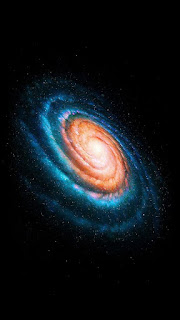Beyond the Stars: Exploring the Mysteries of the Universe in 2023
Table of Contents
- The fascination with the universe
- Astronomical events to look forward to in 2023
- New space missions shaping our understanding
- The James Webb Space Telescope: A game-changer
- Euclid spacecraft: Shedding light on dark matter and dark energy
- Unveiling the secrets of black holes
- Exploring exoplanets and the potential for life
- The role of technology in space exploration
- How scientists study cosmic radiation
- The mysteries of dark matter and dark energy
- The search for gravitational waves
- The future of space exploration
The fascination with the universe
Astronomical events to look forward to in 2023
In the realm of astronomy, 2023 promises an array of exciting celestial events. One such event is the Perseid meteor shower, where shooting stars streak across the night sky in August, leaving spectators in awe. Additionally, a total lunar eclipse is expected in November, offering a mesmerizing spectacle as the Earth's shadow engulfs the moon. These celestial phenomena provide us with opportunities to connect with the universe and witness its awe-inspiring beauty.
New space missions shaping our understanding
The James Webb Space Telescope: A game-changer
Euclid spacecraft: Shedding light on dark matter and dark energy
In 2023, the European Space Agency (ESA) will launch the Euclid spacecraft, dedicated to unraveling the mysteries of dark matter and dark energy. By mapping the distribution of galaxies across the cosmos, Euclid will help scientists comprehend the nature of these elusive components that constitute a significant portion of the universe. This mission holds the potential to transform our understanding of the fundamental forces shaping the cosmos.
Unveiling the secrets of black holes
Black holes, enigmatic cosmic objects with gravitational pulls so strong that nothing can escape them, continue to intrigue astronomers. In 2023, researchers will employ various techniques, including gravitational wave detectors and advanced telescopes, to study these captivating celestial entities. By observing the effects of black holes on their surroundings and studying their gravitational waves, scientists aim to unlock the secrets hidden within these cosmic behemoths.
Exploring exoplanets and the potential for life
The quest for exoplanets—planets orbiting stars outside our solar system—continues in 2023. Scientists are using cutting-edge techniques to detect and study exoplanets, with a particular focus on identifying potentially habitable ones. By analyzing their atmospheres for biosignatures, such as the presence of water or organic molecules, researchers hope to find evidence of extraterrestrial life. Each discovery brings us closer to answering the age-old question: Are we alone in the universe?
The role of technology in space exploration
Advancements in technology have played a pivotal role in shaping our understanding of the universe. In 2023, new innovations in space exploration will further propel our quest for knowledge. From improved imaging systems and propulsion technologies to miniaturized satellites and AI-assisted data analysis, these advancements will enhance our ability to explore, observe, and comprehend the mysteries of the cosmos.
How scientists study cosmic radiation
The mysteries of dark matter and dark energy
Dark matter and dark energy, together comprising around 95% of the universe's content, remain one of the greatest enigmas in modern astrophysics. In 2023, scientists will employ various methods, including precision measurements and observations of the cosmic microwave background, to probe the properties and distribution of dark matter and dark energy. Unraveling their nature holds the potential to revolutionize our understanding of the cosmos and its evolution.
The search for gravitational waves
The groundbreaking detection of gravitational waves in 2015 opened a new window to explore the universe. In 2023, scientists will continue their quest to detect and study these ripples in space-time caused by cataclysmic cosmic events. Advanced detectors, such as the Laser Interferometer Space Antenna (LISA), will join the efforts, offering a new perspective on the universe and unveiling hidden celestial phenomena.
The future of space exploration
As we venture into 2023 and beyond, the future of space exploration appears promising. With technological advancements, new discoveries, and international collaborations, humanity's understanding of the universe will continue to expand. From ambitious missions to the Moon, Mars, and beyond, to unraveling the deepest mysteries of the cosmos, our journey into space holds immense potential for scientific breakthroughs and achieving a deeper comprehension of our position within the vastness of the cosmos.
In 2023, the universe beckons us to embark on a grand adventure, pushing the boundaries of our knowledge and igniting our curiosity. From celestial events that mesmerize us to groundbreaking space missions that redefine our understanding, the mysteries of the universe await exploration. As we gaze beyond the stars, we find ourselves on the cusp of remarkable discoveries that will shape our understanding of the cosmos for generations to come.
FAQs:
Q1: Will the James Webb Space Telescope replace the Hubble Space Telescope?
A: While the James Webb Space Telescope will provide invaluable insights into the universe, it will not replace the Hubble Space Telescope. Both telescopes serve unique purposes, with the JWST focusing on infrared observations and the Hubble excelling in visible and ultraviolet wavelengths.
Q2: Are there any chances of finding extraterrestrial life in 2023?
A: The search for extraterrestrial life remains ongoing, but it is difficult to predict when or where we might find concrete evidence. Discoveries of potentially habitable exoplanets are bringing us closer to answering this question, but further exploration and research are needed to confirm the existence of extraterrestrial life.
Q3: How do scientists study cosmic radiation in space?
A: Scientists study cosmic radiation using specialized instruments and detectors both on Earth and in space. These devices measure the energy and intensity of cosmic rays, allowing researchers to understand their properties and effects. Additionally, experiments are conducted on the International Space Station to study the impact of cosmic radiation on living organisms and develop strategies for protection during long-duration space missions.
Q4: What are gravitational waves, and why are they important?
A: Gravitational waves are ripples in space-time caused by violent cosmic events, such as the collision of black holes or the explosion of supernovae. Their detection has opened up a new field of astronomy, providing a unique way to study the universe. Gravitational waves carry valuable information about the objects and events that produce them, offering insights into the nature of gravity, the evolution of galaxies, and the dynamics of black holes.
Q5: What are the potential benefits of space exploration for humanity?
A: Space exploration brings numerous benefits to humanity. It drives technological advancements that find applications in various fields, such as medicine, communication, and transportation. Additionally, space exploration inspires future generations, fosters international collaborations, and expands our understanding of the universe and our place in it. Furthermore, studying other planets and celestial bodies helps us gain insights into Earth's own ecosystem and climate.
Q6: How can I get involved in space exploration or astronomy as an enthusiast?
A: There are several ways to engage with space exploration and astronomy. Joining local astronomy clubs, participating in stargazing events, and attending public lectures and workshops are great ways to connect with like-minded enthusiasts and learn from experts. Additionally, staying updated with the latest discoveries and advancements through scientific publications, documentaries, and online resources can deepen your knowledge and passion for the cosmos.
In conclusion, 2023 holds tremendous promise for exploring the mysteries of the universe. From celestial events that captivate our senses to groundbreaking space missions that push the boundaries of our knowledge, this year offers remarkable opportunities for scientific discovery. As we venture beyond the stars, we embark on a voyage of understanding, fueling our curiosity and expanding our horizons. The universe awaits our exploration, and with each step we take, we come closer to unraveling its awe-inspiring secrets.






